Introduction to Purposeful Travel Summit
The concept of purposeful travel embodies significant trends, movements and aspirations surrounding the present condition of global travel. It is a bold starting point for discussion of what is happening and what direction we want to pursue in travel. People want to travel and destinations want to host but we all know we can do it better.
Join us in framing the future of travel.
Joe Pavelka PhD
A Word from the President and CEO
It is my pleasure to welcome you to the 2023 Purposeful Travel Summit, presented by Banff Centre for Arts and Creativity. For the next few days, our beautiful campus will be home to a group of individuals with a shared interest within the tourism industry, that of travel with conscious awareness of people, planet, place and pace.
Banff Centre is thrilled to host this inaugural summit on the forefront of a new era in travel that integrates sustainability, education, and a passion to promote travel that contributes to a better world. During your time with us on the side of Sacred Buffalo Guardian Mountain in Treaty 7 territory, we are pleased to be able to offer the best in hospitality: iconic mountain views, first-class conference facilities and culinary delights in Vistas dining room and Maclab Bistro.
Travel is essential to our growth and well-being, and to the livelihood of communities worldwide, including our own here in Banff. I wish you the best in your time here at Banff Centre, and that this summit may allow for shared learning and expansive conversation around the relevance and importance of purposeful travel.
Sincerely,
Janice Price
President and Chief Executive Officer
Banff Centre for Arts and Creativity
Schedule at a Glance
Monday, February 13th
Pre- Summit Day of Programming
View Full Details and Presenters
7:30am -2:00 pm
Summit Registration
Max Bell Building Foyer
8:30am- 12:30 pm
Truth and Right Relations Workshop
Max Bell Building, Room 252
1:45-4:30pm
Indigenous Tourism Panel Discussion
Max Bell Auditorium
4:00pm- 7:00pm
Summit Registration
Kinnear Centre First Floor Galleria
Tuesday, February 14th
Summit Day 1
View Full Details and Presenters
8:00 am- 12:00 pm
Summit Registration
Kinnear Centre First Floor Galleria
10:00 am- 11:45 am
Welcome and Opening Remarks
Kinnear Centre Room 103
12:00 pm- 1:00 pm
Buffet Lunch
Vistas Dining Room
1:30- 4:30 pm
Concurrent Workshops
Kinnear Centre 2nd and 3rd floor
Fergus Maclaren | Kinnear Centre 201
Chief Lorenzo Sanford (Online) | Kinnear Centre 301
Leslie Taylor | Kinnear Centre 305
Xavier Font (Online) | Kinnear Centre 205
5:00-6:30pm
Cocktail Reception - Cash Bar
Kinnear Centre Room 105
6:30 pm- 8:30 pm
Buffet Dinner & Keynote Speaker: Rick Steves
Kinnear Centre Room 103
Wednesday, February 15th
Summit Day 2
View Full Details and Presenters
7:30 am- 10:30 am
Summit Registration
Kinnear Centre First Floor Galleria
7:30 am- 9:00 am
Buffet Breakfast & Keynote Speakers : Ronna Schneberger & Tracey Gage
Kinnear Centre Room 103
9:30 am- 12:00 Noon
Concurrent Workshops
Kinnear Centre 2nd and 3rd floor
Angela Nag | Kinnear Centre 201
David Fennell (Online) | Kinnear Centre 205
Jara Schreiber (Online) | Kinnear Centre 301
Sonya Jakubec | Kinnear Centre 305
12:00 pm - 1:00 pm
Buffet Lunch
Vistas Dining Room
1:15pm – 2:30pm
Summit Synthesis - An interactive sense-making activity and Summit summary
Kinnear Centre Room 103
2:45pm- 3:45pm
Closing Keynote: Megan Epler Wood
Kinnear Centre Room 103
4:00 pm- 4:30 pm
Closing Remarks
Kinnear Centre Room 103
2023 Summit Speakers
Truth and Right Relations Workshop Faculty
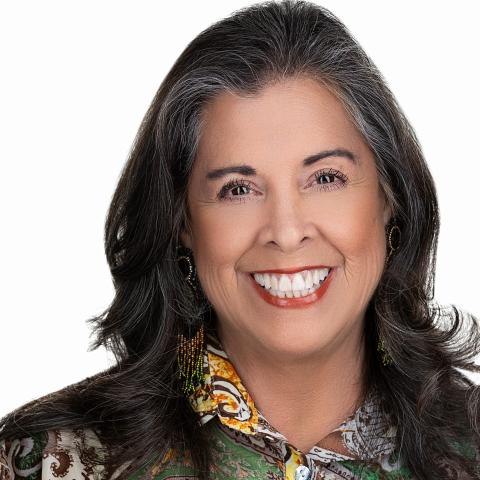

Dr. Cynthia Wesley- Esquimaux
Truth and Right Relations Workshop Faculty
Dr. Cynthia Wesley-Esquimaux served as Vice Provost for Indigenous Initiatives at Lakehead University for three years. Effective September 2016 she was appointed the 1st Indigenous Chair for Truth and Reconciliation in Canada for Lakehead University and continues to develop pathways forward to reconciliation across Canada.
Cynthia was inducted as a “Honourary Witness” by the Truth and Reconciliation Commission of Canada in 2014, and is Chair of the Governing Circle for the National Centre for Truth and Reconciliation at the University of Manitoba.
She is a member and resident of the Chippewa of Georgina Island First Nation in Ontario and has dedicated her life to building bridges of understanding. She sees endless merit in bringing people from diverse cultures, ages, and backgrounds together to engage in practical dialogue and applied research initiatives.
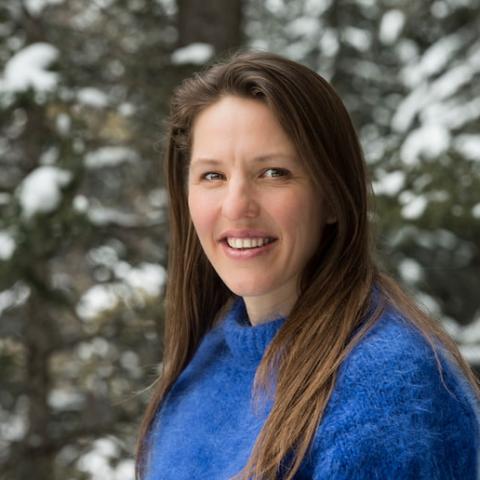

Erin Dixon
Faculty
Walking with vision and all of life in mind, Erin shares her Otipemisiwak-Métis heritage and passion for life – from Indigenous science through to living systems transformation.
Erin is faculty for Banff Centre, currently supporting Indigenous Leadership and Management Development and Reconciliation and Right Relations programs. For the last six years Erin has held the role of an Indigenous Awareness Trainer for the Ontario Provincial Police co-facilitating five-day transformational learning programs and outreach. She leads the co-creation of multi-sectorial/organizational, community-youth driven life promotion initiatives with northern remote Nations.
A landscape of Erin’s recent collaborations include co-facilitating with mentor Michael Jones in hosting generative spaces and dialogue sessions for leaders on Wasan Island – Breuninger Foundation, Tamarack Institute, The Good Work Institute at Bard College, and the Garrison Institute. She has also co-facilitated with change leaders at Mind Camp and for six years has co-led Mariposa Folk Festival’s award winning greening programs, collaborating with Ryerson University. Erin has worked locally and globally, with every type of organizing structure – cultivating patterns of openness, connection, and reciprocity for collective impact.
Erin carries a BA in Law and Environmental Studies, a MA in Global Leadership from Royal Roads University, with Post Graduate studies in Eco-psychology – land based nature reconnection programs. Her capstone documentary, The Star Blanket Project, invited a shared inquiry into the call for Awakening the Spirit of Place in Transcending Paradigms and she was the first team to ever receive RRU Founders Award for leadership and personal development. Erin was selected to attend Getting to Maybe: A Social Innovation Residency and is currently walking in a traditional year long, Feather Carriers, Life Promotion program.
Erin is at home and naturally walks between and bridges different worlds, braiding pathways towards what is possible, and the essence of what is being called to life.
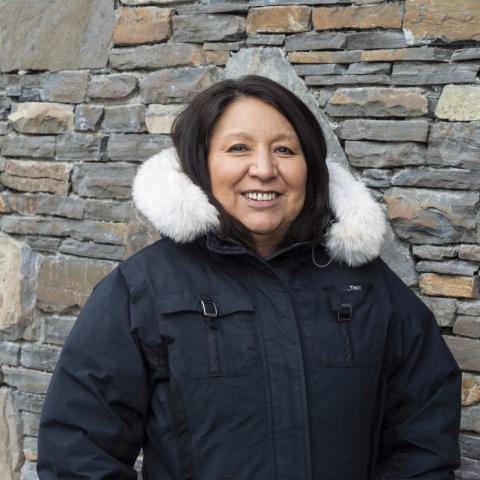

Elder Alice Kaquitts
Truth and Right Relations Workshop Faculty
Alice Kaquitts is a proud member of the Stoney Nakoda Wesley First Nation. Alice is a respected elder and community leader in the Stoney Nakoda nation and is the daughter of Alice Kaquitts Sr. and Thomas Simeon, and great-granddaughter of renowned Chief Hector Crawler.
Alice grew up in a traditional way of life where Nakoda language, culture and protocols were taught and followed. Alice’s formal education includes a diploma from Mount Royal College and a Bachelor of Social Work from the University of Calgary. Alice has been working within the Stoney Nakoda Nation in senior level positions for over 20 years.
Alice is a healthy, proud grandmother to 5 beautiful grandchildren and mother to two adult sons, and enjoys passing on her traditional knowledge and teachings to the future generations.
2023 Indigenous Panel Discussion Speakers


Mackenzie Brown
Indigenous Panel Discussion Speaker
Mackenzie is a First Nations Cree woman from the Sturgeon Lake Cree Nation, currently residing in Calgary, Mohkinstsis. She is a performer, drummer, tourism entrepreneur, philanthropist, and advocate for at-risk youth in the Edmonton area.
Mackenzie and her mother perform as “Warrior Women.” They drum and teach around Alberta and facilitate culturally appropriate educational performances as well as Indigenous creative workshops and programs. Along with drumming, Mackenzie is also an avid acrylic artist and traditional First Nations crafts artisan. Her art has been featured in the Pump House Gallery, Arts Commons Calgary, the Edson Gallery Museum, and the Gray Gallery of MacEwan University. Her work has been recognized for the Alberta Indian Arts and Crafts Award of 2017, featured at the 2017 Alberta Business Competition, and sold to people travelling worldwide at Jasper Park Lodge. She is the recent recipient of the 2022 Alumni Award for Grant MacEwan University, 2019 Esquao Award for Children’s Future from the Institute for the Advancement of Aboriginal Women and the 2019 Jaime Carriere Iskwew of the Year Award. Makenzie is the Director of Industry Development at Indigenous Tourism Alberta ensuring effective outreach, communication, and relationship-building with Indigenous communities.
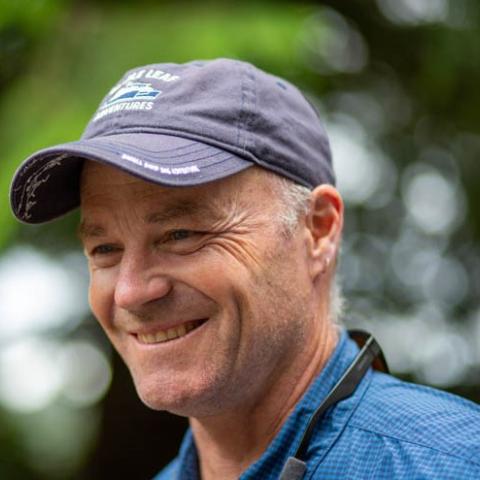

David Pinel
Indigenous Panel Discussion Speaker
David has been at the helm of North Island College’s Adventure Guiding and Indigenous Ecotourism programs on Vancouver Island since 2002. Through this, he has worked closely with students and knowledge keepers from over 30 coastal First Nations.
He is the past owner and now consulting Co-Manager of West Coast Expeditions, for the local Ka:’yu:’k’t’h’ / Che:k:tles7et’h’ First Nations (KCFN). WCE provides a nationally recognized Canadian Signature Experience and was Canada's first kayak tour company to achieve the Sustainable Tourism Gold Award. Through his leadership and this ownership transition, WCE recently became accredited with The Original Original mark from the Indigenous Tourism Association of Canada (ITAC) as part of an exciting and important path ahead for the KCFN and sector.
With more than 35 years of experience guiding, instructing and educating in coastal BC, David is committed to developing well-rounded skills and knowledge in adventure and ecotourism leaders, including a passion for working with Indigenous ecotourism education, partnerships, and community capacity building. David’s applied research and consulting outreach has been focused on community-based tourism planning and regional economic development that prioritizes cultural and ecological stewardship for health and well-being.
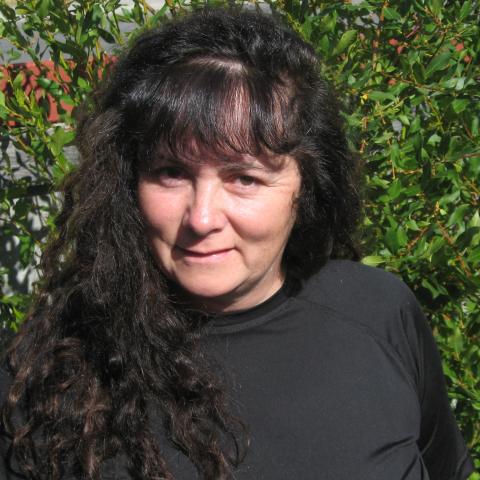

Brenda Holder
Brenda Holder was born and raised in the Rockies in Jasper National Park and is pleased to follow her lineage as a traditional Cree/Iroquois Métis guide from the Kwarakwante of Jasper. She has spent the last 19 years in tourism and has served on many Aboriginal Tourism Advisory Boards and is presently the Chair for the Indigenous Tourism Association of Canada (ITAC), and Chair for the new Alberta Chapter Indigenous Tourism Alberta (ITA). Brenda’s main passion is Traditional Medicine and she uses that and other cultural knowledge to build quality programs for guests taking part of her tours and programs.
Brenda has spent much of her career as a guide to connect people to the land through Indigenous eyes and through learning about the medicines gifted to all people. Her accomplishments are extensive resulting in many prestigious awards for her work in using her company both in the entrepreneurial spirit and in educating the public about Métis culture. Some of these awards have included Aboriginal Woman Entrepreneur Award of Distinction presented from the Alberta Chamber of Commerce; Esquao Award from the Institute for the Advancement of Aboriginal Women (IAAW); and Métis Entrepreneur of the Year.
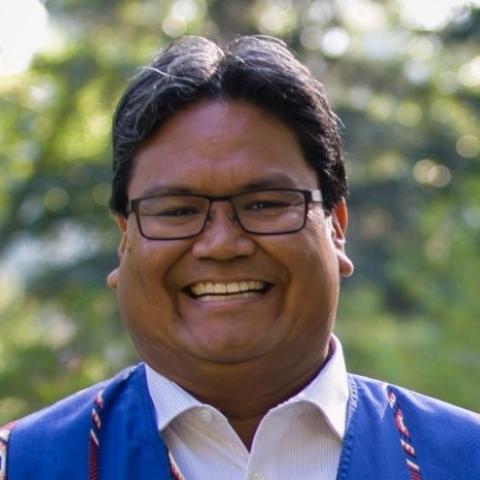

Simon Ross
Director, Indigenous Leadership
Hailing from Nlaka'pamux Nation in British Columbia, Simon has more than twenty – five years of successful experience in the areas of post-secondary education, healthcare, non-profit sector and working with and for Indigenous communities and organizations.
With multidisciplinary interests ranging from community health, career development and leadership training to adventure tourism and environmental land based education. Simon is now the Director of Indigenous Leadership at the Banff Centre. His role is to oversee the Indigenous Leadership portfolio. As the Director he brings his passion, leadership and vision to strengthen and grow the programs for the continued success of participants. Who strengthen and build their communities as sovereign nations with self-governance and self-determination as their footholds for thriving communities.
Throughout his career, Simon has stood at the forefront of developing meaningful connections and has built a reputation as a catalyst in championing the empowerment of individuals and communities. As a senior health program advisor, he partnered with healthcare providers to better understand the diverse needs of First Nation communities in planning quality programs and services. In the areas of education and career development, Simon worked as liaison between Indigenous workers and future employers; and initiated culturally-based Indigenous and non-Indigenous skills and leadership training programs. He provided operational leadership in funding; program advancement; strategic planning; board governance; and community and governmental relations.
2023 Keynote Speakers
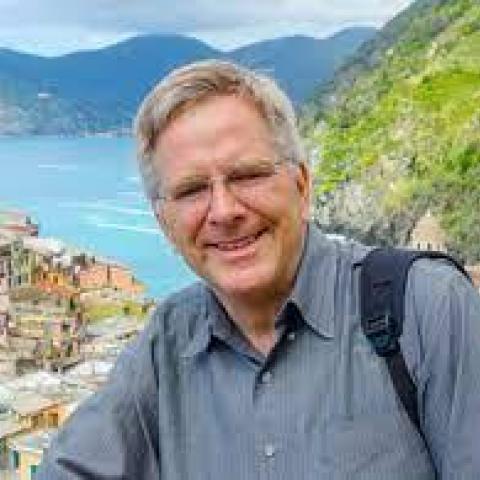

Rick Steves
Keynote Speaker (Online Presence)
Rick Steves is a popular public television host, a best-selling guidebook author, and an outspoken activist who encourages Americans to broaden their perspectives through travel. But above all else, Rick considers himself a teacher. He taught his first travel class at his college campus in the mid-1970s — and now, more than 40 years later, he still measures his success not by dollars earned, but by trips impacted.
Widely considered America's leading authority on European travel, Rick produces a best-selling series of guidebooks and is the author of Travel as a Political Act. He is dedicated to providing all Americans with access to travel information, and has made extensive resources available for free on the Rick Steves' Europe website, via the Rick Steves Audio Europe™ app, and in Rick Steves Classroom Europe™, a searchable database of short, teachable video clips.
A longtime supporter of public broadcasting, Rick produces and hosts public television and radio shows that air across the nation. Rick is the founder and owner of Rick Steves' Europe (RSE), a travel business with more than 100 full-time employees. RSE operates a successful tour program which brings more than 30,000 people to Europe annually. The company contributes annually to a portfolio of climate-smart nonprofits, essentially paying a self-imposed carbon tax.
Rick works closely with several advocacy groups and makes regular financial contributions to more than 170 organizations, including annual contributions to Bread for the World. He is a board member of NORML and has been instrumental in the legalization of marijuana in several states. He has also provided $8 million in funding to build two new neighborhood centers in his community, and has donated a 24-unit apartment building for homeless women and their children to his local YWCA.
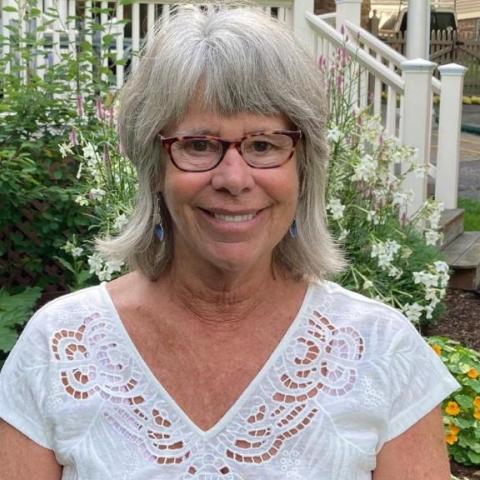

Megan Epler Wood
Keynote Speaker
Megan Epler Wood is the Managing Director of the Sustainable Tourism Asset Management Program (STAMP) at Cornell University in the Center for Sustainable Global Enterprise at the SC Johnson College of Business where she is the lead lecturer for a comprehensive 40-hour, self-paced course Sustainable Tourism Destination Management. This dynamic and fully digital course, released in December 2022, is designed for business leaders, urban planners, sustainable development professionals, destination management organizations (DMOs) and municipal government employees. She led the research and writing for the ground-breaking 2019 report Destinations at Risk; The Invisible Burden of Tourism which helped redefine how
the tourism economy can better meet sustainability requirements on a regional level while covering local costs. Her 2017 book, Sustainable Tourism on a Finite Planet is used as a text worldwide and reviews the sustainability strategies for each sector of the tourism industry. She was with Harvard University from 2010-2021 leading courses and research and leads the international consulting firm EplerWood International (EWI) which designs value-added sustainable tourism economies-- working with international and regional development agencies, destination management organizations, and development banks since 2003.
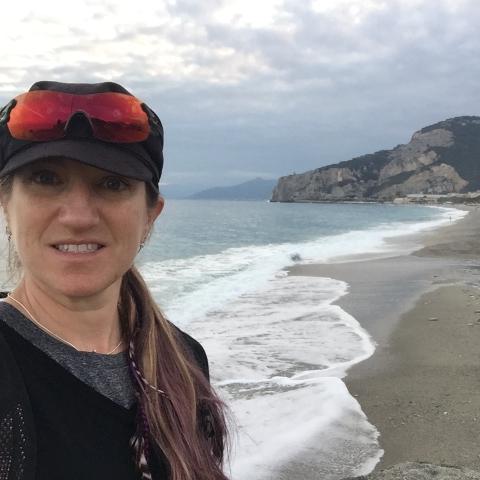

Tracey Gage
Keynote Speaker
Tracey Gage is the Executive Director for the Interpretive Guides Association; an Alberta-based not-for-profit guide training and certification association. She is also a certified master interpreter, Interpretive trainer, hiking guide and tour guide, who has been sharing her love of Western Canada with guests for over 25 years. She has an honours degree in Wildlife Biology from Guelph University as well as degrees in teaching and geography from Lakehead in Thunder Bay. These degrees helped set her up well for the variety of work she does.
Through teaching and coaching, Tracey helps guides learn how to communicate information about their places in meaningful, memorable, and inspiring ways. When Tracey is not helping guides advance their interpretive skills she works with outdoor leaders, educators, and researchers to create a stronger, more cohesive, safe, and standardized industry for outdoor professionals to work in.
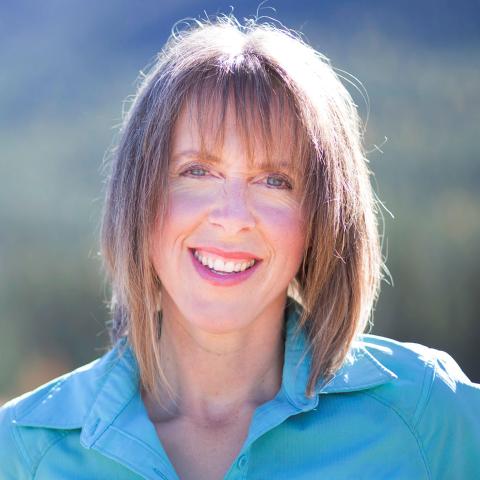

Ronna Schneberger
Keynote Speaker
Ronna Schneberger is an award-winning master interpreter, naturalist, and hiking guide in mountain parks for over 25 years.
In 2016 she became one of the first Canadian forest bathing guides, she is now a trainer. Ronna is the Chair of Nature and Forest Therapy of Canada. In her quest to connect people to nature, she incorporated yoga, meditation, forest bathing, and personal reflection in nature. The results were profound.
When Ronna is not training new hiking or forest bathing guides, she works with leaders, professionals, and executives from all over the world using nature as the teacher to create powerful reflections and transformation. Ronna’s unique nature programs use proven techniques to help people reset and rejuvenate so they can reclaim calm and clarity in their busy lives.
2023 Workshop Presenters
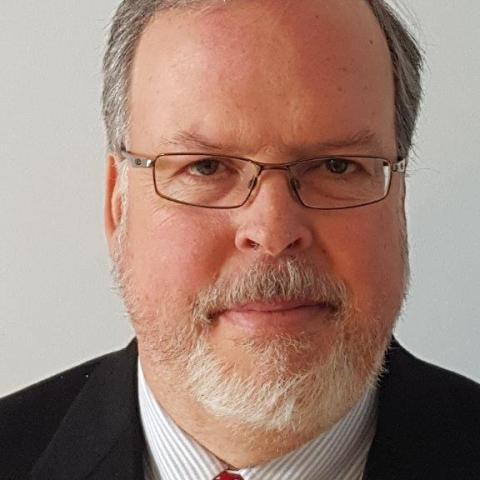

Fergus Maclaren
Workshop Presenter | Tourism and Climate
Fergus Maclaren is a Canadian sustainable tourism and cultural heritage management professional with 30 years of experience in North America, Africa, Asia and Europe, with much of his current professional focus involving tourism to World Heritage sites and the implementation of the 2030 UN Sustainable Development Goals. His role with the International Council on Monuments and Sites (ICOMOS), one of the three advisory bodies to UNESCO's World Heritage Centre, which has recently involved him with post-COVID tourism recovery analyses and framework development. This background is informed by a broad range of tourism planning, destination management, and development expertise. His professional experience includes: coordinating international meetings and input as the Director of the UN-funded International Year of Ecotourism (IYE); teaching sustainable tourism at McGill University and lecturing on the subject at post-secondary institutions internationally. He currently works in Expert and professional capacities for UNESCO, UNWTO, the Organization of World Heritage Cities, the World Monuments Fund, the Economic Innovation Institute for Africa, and the Heritage and Cultural Society for Africa. He also has his own private consulting firm, MAC-DUFF Tourism | Heritage | Planning.
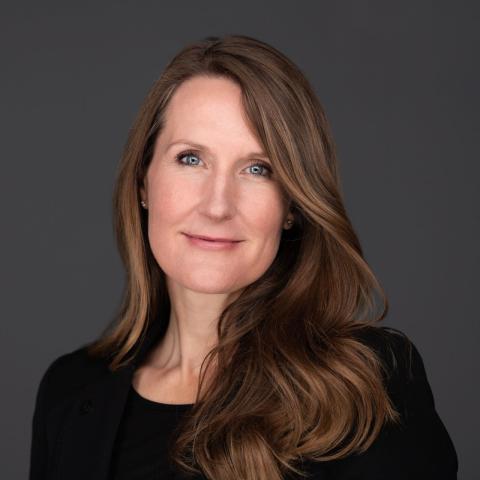

Angela Nagy
Workshop Presenter | Tourism and Climate
Angela Nagy is the CEO of GreenStep Solutions, a company that has provided sustainability strategies and programs for thousands of small and medium-sized enterprises since 2008. Through their Sustainable Tourism division, Angela and her team provide solutions that help tourism destinations and businesses to improve their sustainability performance, including sustainability strategy development, assessments, certifications, eco-funding, consulting, training programs, and carbon footprint measurement. Angela has been trained by former Vice President and Nobel Laureate, Al Gore, David Suzuki, and IPCC scientists to deliver the Climate Reality Project and is certified in Organizational GHG Accounting through the Greenhouse Gas Management Institute, and as a Sustainability Practitioner through The Natural Step. Her experience also includes politics, and Angela has served as an elected official at both the municipal and regional levels, elected on a platform of sustainability.
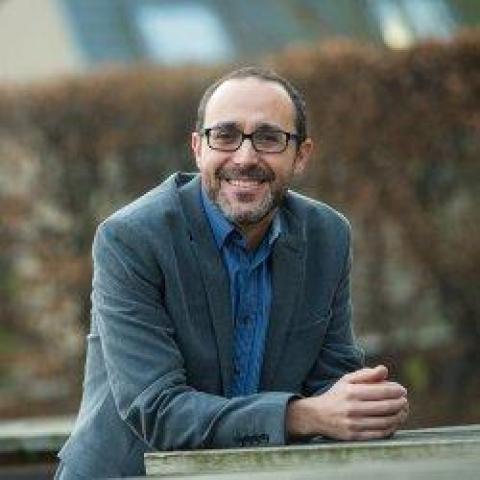

Xavier Font
Workshop Presenter | The Traveler (Online Presence)
Xavier Font is a professor of Sustainability Marketing at the University of Surrey, and Professor II at the University of the Arctic in Norway. He researches and develops methods of sustainable tourism production and consumption. He has published widely about sustainable tourism certification and has consulted on sustainable product development, marketing and communication currently serving as advisor in Prince Harry's Travalyst coalition of Amadeus, Booking, Google, Expedia, Skyscanner, Travelport, Trip, Tripadvisor and Visa. He has supervised 20 PhDs to completion. He is the Editor in Chief of the Journal of Sustainable Tourism (IF 9.470). He has conducted over 200 courses for more than 5,000 businesses on how to market and communicate sustainability. He is currently the Principal Investigator for the University of Surrey for the €23m Interreg project Experience to develop low-season sustainable tourism visitor experiences in the UK and France.
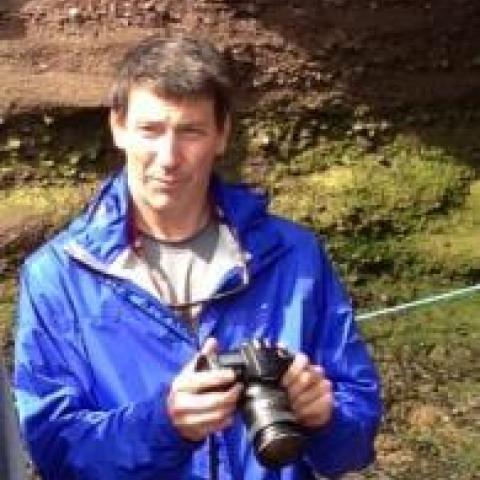

David Fennell
Workshop Presenter | The Traveler (Online Presence)
David Fennell, PhD, is a Professor in the Department of Geography and Tourism Studies, Brock University, Canada. He is the founding Editor-in-Chief of the Journal of Ecotourism and has published widely on ecotourism, the moral issues tied to the use of animals in tourism, sustainable tourism, and fly-fishing. His books on Ecotourism, Tourism and Animal Ethics, and Tourism Ethics are the most highly cited volumes in their respective sub-fields. He uses theory from other disciplines, such as philosophy and biology, to gain traction on some of tourism's most entrenched problems and is recognized globally as a tourism knowledge innovator. David is a top 2% global scientist (all disciplines) in terms of citations.
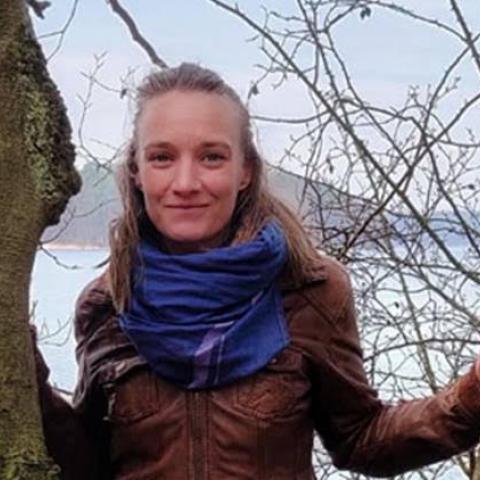

Jara Schreiber
Workshop Presenter | Resident Focus (Online Presence)
Jara Schreiber works as a coordinator for the multi-stakeholder initiative and non-profit association Roundtable Human Rights in Tourism. She holds a degree in Cultural Studies (BA) and Sustainable Tourism Management (MA). She has worked, among others, for a sustainable tourism development consultancy and a tour operator specializing in Madagascar. She has profound experience in the field of sustainable tourism and development.
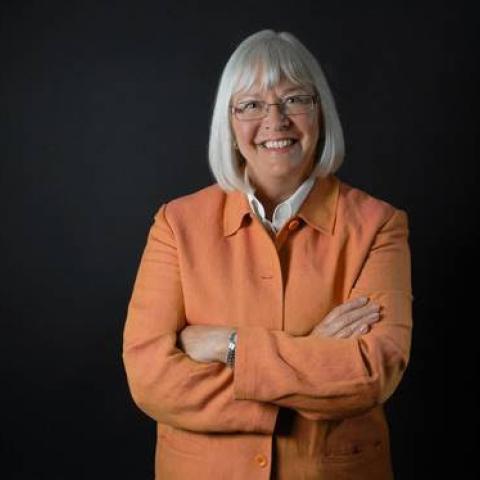

Leslie Taylor
Workshop Presenter | Resident Focus
Raised as an “army brat” in France, Germany, the USA and across Canada, Leslie graduated from the University of Guelph with a B.Sc. in fisheries and wildlife biology. She worked in provincial and national parks in three provinces, capping her parks career as acting superintendent in Banff. Leslie left Parks Canada to pursue an interest in consulting work (facilitation, training and writing) – work that she continues today. From 1998 to 2007, she was an associate director in the Mountain Culture division of The Banff Centre, creating and leading the mountain environment programs there. Leslie served two terms as mayor of the town of Banff, and two terms as a Banff town councillor. She volunteers on the Municipal Planning Commission.
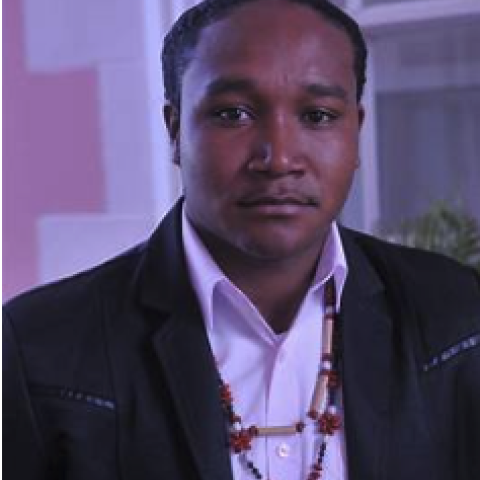

Chief Lorenzo Sanford
Workshop Presenter | Inclusion/Balance (Online Presence)
Chief Lorenzo Sanford of the Kalinago Territory, Dominica represents the future of the Kalinago people. In 2019 he was elected chief at the age of 22, the youngest Kalinago chief in Dominica.
Since then, he has worked tirelessly to provide a voice for the Kalinago people and especially its youth.
Chief Lorenzo recently attended the US Department of State’s International Leadership Program, which focused on human and civil rights for marginalized communities.
The Kalinago territory is the last remaining autonomous indigenous territory in the Caribbean. The territory is situated on the small Caribbean island of Dominica which relies heavily on nature tourism. Chief Lorenzo and his Council are challenged to lead the territory through a fine balance of economic development, climate sensitivity and social and cultural sustainability. Their aim is to create prosperity that encourages young people to stay on the land, embrace their culture and traditions and that does not limit future possibilities.
Sustainable tourism development is one of the pillars of his strategy. Chief Lorenzo will share the role tourism plays in the preservation of the Kalinago community.
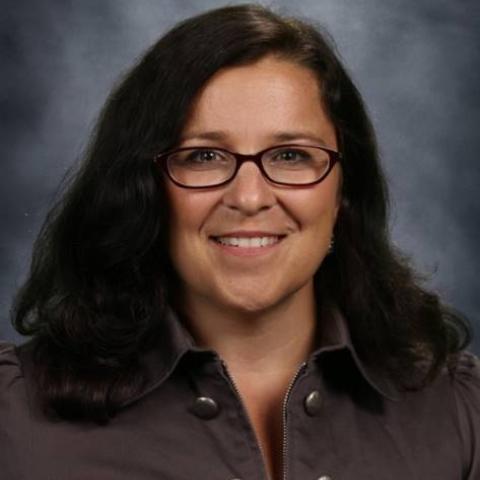

Sonya L. Jakubec
Workshop Presenter | Inclusion/Balance
Sonya L. Jakubec is a community mental health nurse and researcher based in Calgary, Alberta, Canada. She studies the interconnection of supportive environments and wellbeing across the lifespan, concentrating on community and public health approaches. Her current work examines the health and wellbeing benefits of inclusion in parks for people of all abilities and ages – including dementia, palliative and grief care, as well as ecological grief. She has contributed to several textbooks, book chapters, peer reviewed journal and professional articles, media interviews and opinion pieces, as well as research snapshots and documentary films in the public domain.
Subscribe to our mailing list and be the first to know about upcoming summits and other activities at Banff Centre.
